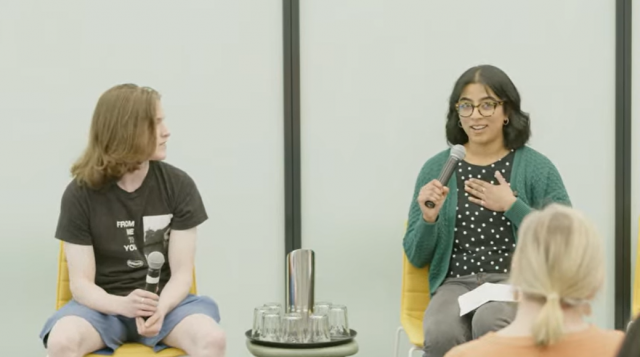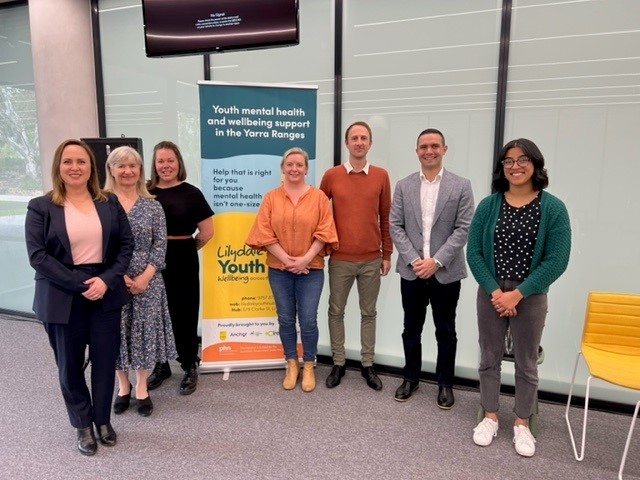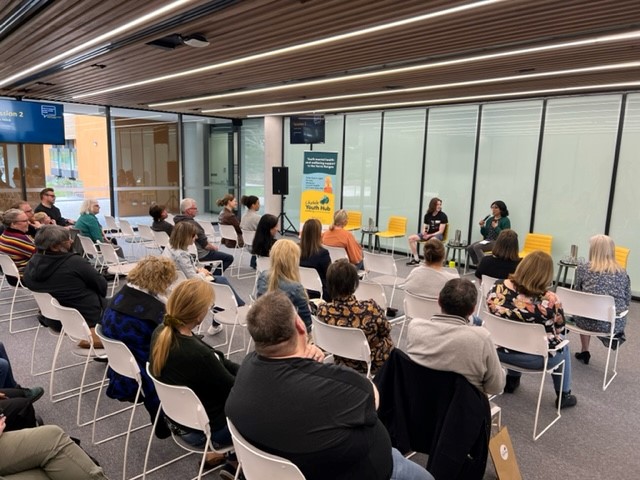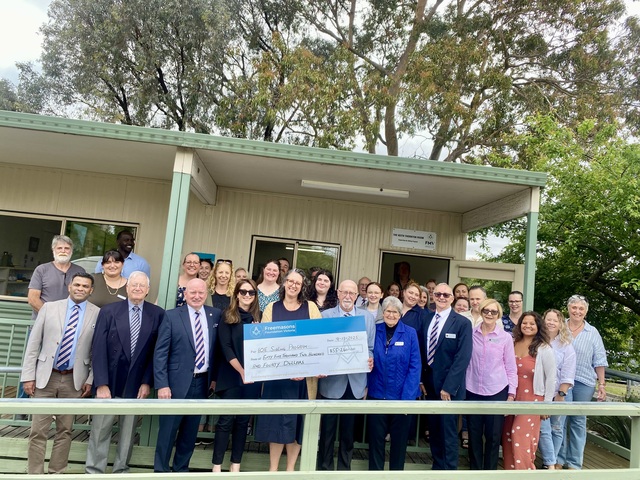Discussions around youth mental health and how best to approach those conversations was the theme of the day at the Lilydale Youth Hub’s mental health forum.
Held on Sunday 9 October, the Hub brought together members of the consortium’s team, as well as young people to talk all things mental health support.
Inspiro CEO Sue Sestan opened the session speaking of the unique structure of the Hub combining the expertise of five different Yarra Ranges services.
“The Lilydale Hub would not have achieved the remarkable impact that it has to date if it wasn’t for the combined efforts of our organisations and our staff,” she said.
While a positive day for youth mental health discussions, the overshadowing of a lack of State or Federal government funding to continue the service did appear throughout the discussions.
“The hub closing in 2022 at the end of December would be a huge loss for the community and a significant waste of resources given we are fully operational and have capacity right now to keep delivering services,” Sue said.
The Hub has decided to close referrals to use the service on 1 November, with the vision of the 31 December closure date.
Sue touched on the absolute need for mental health services to be increasing in the Yarra Ranges area, not decreasing, by sharing some statistics released in the 2021 Census.
There are 26,000 young people in the shire and 13.3 per cent of 13-25 year olds identified as having a mental health condition, while the Yarra Ranges ranked the seventh highest in all residents reporting a mental health condition.
This, for Sue, showed the importance of such services in the region and said it’s “telling us there is a lot of work ahead of us”.
Hearing from the young people themselves and giving them a voice was a key part of the forum.
“I think what is really underestimated is that youth voice because we make assumptions about what young people need,” Sue said.
“This model that we’ve got is about hearing young people out and also listening to what will make a difference to them rather than us making assumptions.”
Giving that youth voice was Year 10 student Joel, who was accompanied by the Hub’s youth engagement officer Yashna Poorun.
Answering a series of questions, Joel was very open about the current mental health perspective being adopted by young people and the experiences they are facing.
Although Joel said it was hard to pinpoint where young people are at with mental health because it is such a broad topic, he was able to give an overview of how the pandemic impacted many of his friends.
“Young people are struggling with increased feelings of depression and anxiety and also not being able to connect with other people socially because of the lockdowns,” he said.
Returning from the pandemic lockdowns, Joel said even he, someone who is an extrovert, struggled with social anxiety and being unable to hold conversations in person.
Joel said not only has the pandemic affected the mental health discussions being had but social media, particularly TikTok, has changed the way young people speak about mental health issues, taking on an almost ‘joking’ dialogue.
Having an open and safe space for young people to go to where they can discuss the things they see online was something Joel suggested as being the best solution to this larger problem.
Stigma around mental health was also discussed frequently at the forum, with both Joel and Yashna suggesting young people often don’t feel worthy of support, that perhaps there are others who need help more than them.
“I think the biggest thing in all these mental health discussions is stigma. If you can get rid of some of the stigma around mental health support then even the kids who feel like ‘there are more people more deserving of this than me’ are more likely to reach out for help anyway,” Joel said.
“Because of that added barrier of stigma they feel like it’s an extra layer they have to fight through to be able to get mental health support.”
This led the discussion to the generational differences between parents/caregivers and children, with Joel saying that if parents were to share their own mental health struggles would open the dialogue and that sharing stories may be more beneficial.
“We at the hub have a saying ‘there is strength in vulnerability’ and I think young people with needing to feel connected, this could be a way for parents, caregivers and young people to connect and show strength in vulnerability,” Yashna said.
“I think young people often feel like they may not be able to connect because maybe they aren’t aware of parents’ mental health struggles or caregiver mental health struggles and they might not get it.”
Starting these discussions and the opportunity to share stories was one of the aims of the Youth Hub in hosting this event, as well as passing on important messages or teachings about mental health support.
“We thank everyone who attended or watched the live-stream. The more the community comes together to have these kinds of discussions, the more we can provide better support to young people when they need it,” the Youth Hub team said.









